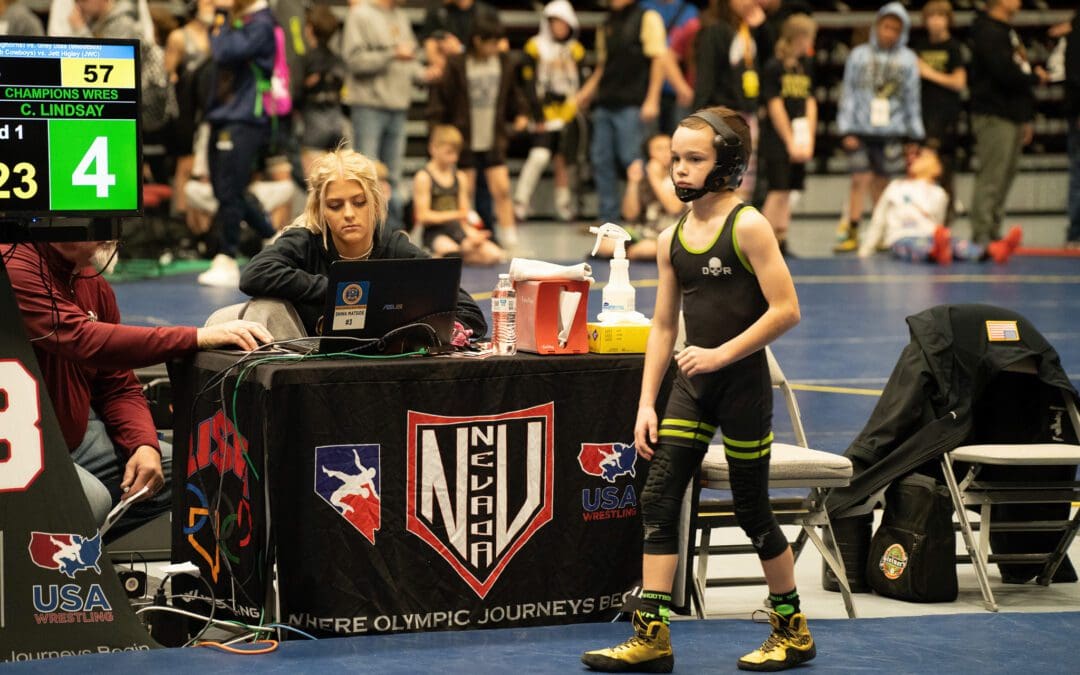Conquering Pre-Match Anxiety in Youth Wrestling
The anticipation of stepping onto the mat can stir a whirlwind of emotions in young wrestlers. The flutter of butterflies in the stomach, a racing heart, and the buzz of anxiety are common pre-match sensations. These feelings, while perfectly normal, can impact a wrestler’s focus and performance if not managed properly. Here’s how youth wrestlers can harness these nerves and get their minds right before a match or tournament.
Understanding Anxiety: It’s All in the Mind
First and foremost, it’s crucial for young athletes to understand that anxiety is a natural response to perceived challenges. It’s the body’s way of preparing for action, a physiological reaction that can be harnessed positively. Emphasizing this perspective can help demystify feelings of nervousness and reframe them as a normal, even beneficial, part of competition.
Breathing Techniques: The Anchor in the Storm
Deep, controlled breathing is a powerful tool to calm the mind and body. Encourage young wrestlers to practice deep breathing exercises as part of their pre-match routine. Inhaling slowly through the nose, holding for a few seconds, and exhaling slowly through the mouth can significantly reduce physical symptoms of anxiety, anchoring them back to a state of calm and focus.
Visualization: Picturing Success
Visualization, or mental rehearsal, involves picturing oneself performing successfully in a match. This technique not only prepares the mind for the task ahead but also builds confidence. Wrestlers can visualize executing moves flawlessly, winning a match, or simply maintaining composure throughout the competition. Regular practice of visualization can make these positive outcomes feel more attainable when the moment comes.
Routine: The Comfort of Familiarity
Establishing a pre-match routine can provide a sense of security and control. This routine might include warm-up exercises, listening to motivational music, or going over strategy with a coach. The familiarity of a set routine can be comforting, helping to ease nerves and build a sense of readiness and confidence.
Positive Self-Talk: The Inner Cheerleader
The way young athletes talk to themselves can significantly impact their mindset. Encouraging positive self-talk helps combat self-doubt and negative thoughts. Phrases like “I am prepared,” “I can do this,” or “I am strong” can be powerful motivators. Parents and coaches can help by reminding wrestlers of their training, progress, and past successes, reinforcing a positive internal dialogue.
Social Support: Leaning on the Team
The support of teammates, coaches, and family can be a strong buffer against pre-match nerves. Encourage young wrestlers to express their feelings and concerns, allowing them to lean on their support system for reassurance and encouragement. Knowing they’re not alone in their feelings can alleviate some of the pressure and anxiety.
Acceptance: Embracing the Nerves
Finally, it’s important for wrestlers to accept that some level of nervousness is inevitable and not inherently negative. Instead of fighting these feelings, embracing them as part of the competitive experience can reduce their power. With acceptance, the focus can shift from trying to eliminate nerves to managing them effectively.
Conclusion
Managing pre-match jitters is a skill that young wrestlers can develop with practice, much like any physical technique in wrestling. By understanding their anxiety, utilizing breathing techniques, practicing visualization, sticking to a routine, engaging in positive self-talk, relying on social support, and accepting their nerves, young athletes can step onto the mat with confidence, ready to give their best performance. Remember, the goal isn’t to eliminate nerves entirely but to learn how to harness them as a source of strength and focus.

